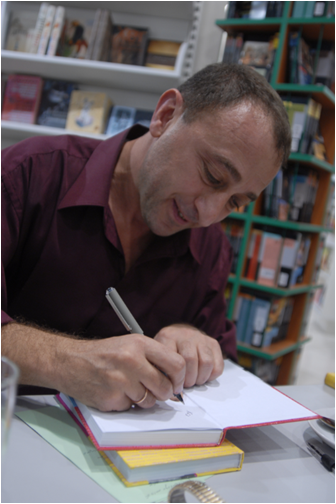“Yes,” I replied, attempting to figure out how she found out since we tried to not to upset her with bad news.
Not saying another word, she determinedly pulled on her raincoat and shoes and left the apartment.
“Where are you going?” I asked, following her to the elevator.
“To your house. I want to ask your wife and son for forgiveness for you.”
I barely convinced her not to do that, got her back in the house, promising to return to my family. But I did not keep my word.
***
Mother’s worldview was limited. She did not harbor great knowledge in politics, economics, or art. She did not read books or newspapers. She only read fairy tales to Leah and me when we were children, and then to her grandchildren. She actually read from the heart, earnestly worrying about the animals and gnomes.
She was bad at calculations and her writing had errors. One year she even studied in a specialized class for kids with intellectual difficulties.
In the café of Barnes and Noble I often spoke about my mother to Bashevis Singer. He confessed to me that the prototype of the heroine in his famous novel Shosha (for which he won a Nobel Prize) was my mother. He said that such limited, “dumb” women are the most valuable possessions of the Jewish people.
“The Jews will exist while such women are born and live among us. Such intellectually limited Jewish women are wiser than all the wisdom of the Torah and all the great German philosophy. God first created Yiddishe Momme—this effort took six difficult days. Creating everything else turned out to be trifles; God only needed a few moments for it.”
 Petr Nemirovskiy
Petr Nemirovskiy